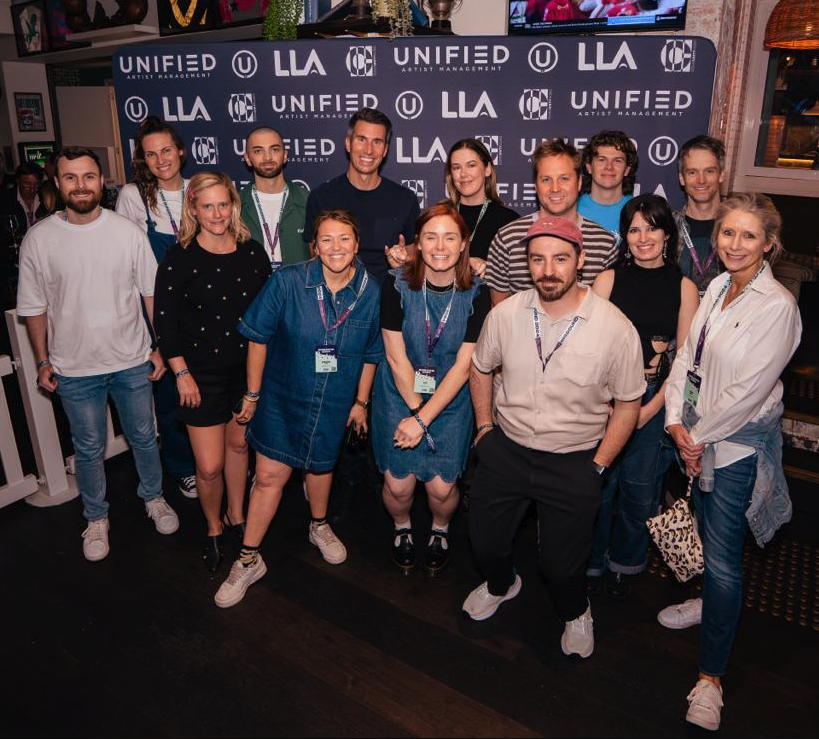Welcome to SWOT by Sound Story, your inside track on the Strengths, Weaknesses, Opportunities and Threats looming for the creative industries.
If you're not already subscribed, you can join SWOT here.
⚡ Trending: A probate court in Nevada has begun reviewing evidence behind closed doors in a case that could determine who will control Rupert Murdoch’s media empire after his death. Words by Scott Sonner. Source: The Sydney Morning Herald.
🎵 Music: The UNIFIED Grant is back. The Grant offers $5,000 to five creative projects, with the objective of enhancing the connectivity of the Australian independent music community. Words by Lars Brandle. Source: The Music Network.
📰 Media: In Red Flag: Music’s Failed Revolution, journalist Marc Fennell uncovers the bizarre story of Guvera, an Aussie start-up that promised to revolutionise music forever, but instead vanished in a $180 million mystery. Source: IF magazine.
💰 Advertising: Mat Baxter, the Asia Pacific chief executive officer of software company, Mutinex, is gearing up to move into a board advisory role, despite only taking on the CEO role at the end of May. Words by Matthew Leong. Source: Mumbrella.
📲 Tech: Should brands be using emojis in 2024? Words by Ben Ashley and Josie Pereira. Source: Mumbrella.
📜 Government: Music Australia is proud to unveil a new funding initiative designed to support Australian labels, from local independents through to major label Australian subsidiaries that are actively discovering, developing, and promoting local talent. Source: Creative Australia.
🌶️ Spicy: Margot Robbie’s The Sims movie is gonna bring to life all the f*cked sh*t you did to your Sims. Words by Rachel Choy. Source: Pedestrian.
Strength: Festival Fever
Barely a week goes by without Australian music festivals being a talking point. This week though, it might not be all talk, and the dial might be on the move.
👉 A recent review found festivals in New South Wales were the most regulated in Australia.
👉 Off the back of this (perhaps unsurprising) finding, the NSW Government said it would make amendments to the legislation – already approved by the State Cabinet – to shift the focus from security to the ‘health and safety of patrons’.
👉 This focus shift will likely be welcomed, given the stories which have emerged about heavy-handed policing and strip searching. Indeed thousands of festival goers may be entitled to compensation from the State Government as part of a class action which is already underway.
👉 The NSW Government also announced two years of emergency funding assistance for festivals, with $3 million currently allocated to the cause.
👉 The Australian Festivals Association (AFA) reacted positively to the news, saying it was a huge win for festivals in NSW. The AFA also said the reforms signalled “an end to the war on music festivals”, which started under the former Coalition Government.
Weakness: Dynamic Pricing Disasters
How much would you pay for a ticket to your favourite band? How much should people pay for tickets to their favourite band? Dynamic pricing might be a solution to this question, but not everyone's sure it should be the solution.
We asked Sound Story's Zanda Wilson: Is there a way forward for Dynamic Pricing which satisfies consumers and doesn’t further damage the live sector?
Zanda: Dynamic Pricing has been fraught with controversy over the past couple of years, and this week Aussies were the ones to cop the brunt of the practice which saw tickets to Green Day’s forthcoming shows skyrocket in price shortly after going on sale.
Some may look at the practice and say it makes sense in theory – that being the system is in place to combat scalpers and ensure prices reflect the true market value of tickets. On the first point, I wonder whether combatting scalpers is a priority for consumers who then end up paying significantly higher prices anyway. The second point might carry more weight if the practice wasn’t so opaque.
Ticketmaster says Dynamic Pricing sees a manual adjustment of a “small portion” of tickets closer to the full market value revealed in resale markets. What on Earth does that even mean? How many is a “small number”? And admitting that the resale market reflects the true market value of a ticket seems like saying the quiet part out loud.
Ticketmaster has also said publicly that it doesn’t choose which shows use Dynamic Pricing, saying in a statement earlier this year (after fans of Oasis raged at the practice) that artists or promoters “can opt for Dynamic Pricing if they want and it is implemented once Ticketmaster gets their approval”. Taylor Swift opted out of the practice for her Eras tour, but plenty of artists have approved the practice. If it’s being presented to artists as “you may as well do it because if you don’t, the scalpers will get that money anyway”, it doesn’t seem like all that much of a choice.
Opportunity: Making an Impact
Music Australia is on a mission to understand the economic impact of the Australian music industry at a national and industry-wide level.
👉 The aptly named Australian Music Economic Impact Study, including a survey, is one way they’re going to do this.
👉 The survey aims to understand the cross-sectional nature of work and income for people, businesses, and organisations working in the music industry.
👉 The focus of the survey is on work and income. You will be asked questions about the role(s) you work in, what area(s) of the music industry you work in, and how you earned income from your work.
👉 The survey is an opportunity for individuals and organisations (both for-profit and not-for-profit) to have their say. You can fill it out here.
👉 The Australian Music Economic Impact Study is scheduled for completion in late 2024.
Threat: Malicious Media
It’s been another week of Australia’s media sector taking swipes at each other.
👉 ABC’s news director, Justin Stevens, has hit out at the “toxic media environment” in Australia.
👉 In his Melbourne Press Club address, Stevens said attacks on ABC journalists are tarnishing the “public perception of all news”.
👉 On the entertainment side of things, Ten announced it would be bringing back early-2000s favourite, Big Brother.
👉 It wasn’t long, however, before the Seven Network (one of Big Brother’s former homes) reportedly sent a legal letter to production company Endemol Shine Australia, noting it still has a “hold back” on the format until mid 2025.
👉 And there’s a new content series about the media from 7NEWS. It goes in hard on what it calls “the ABC’s latest embarrassing backdown”. So we guess the ABC's pleas for fewer attacks aren't being heard just yet.
The Fun Stuff
Quote of the Week: “There is not a writer in this town who thinks their career is going well. Everybody is up against it right now because the jobs are just not there,” a longtime TV writer and producer confirms the grim mood in the Hollywood creative community off the back of job cuts and reduced production budgets, as reported in The AFR.
📸 Team Tidbit: The Sound Story team had a great time at BIGSOUND recently, finding out what’s in store for the future of Australia’s music industry, and hearing a bunch of up-and-coming artists perform. Here are (some of) our team with UNIFIED Music Group and Lonely Lands Agency, ahead of the music group’s showcase.






